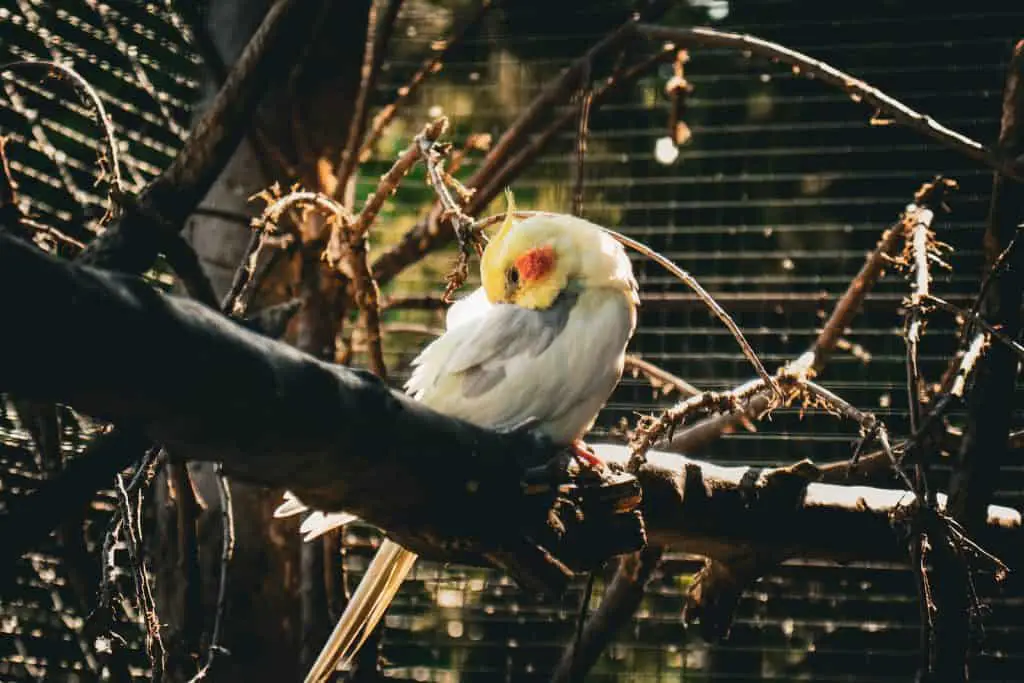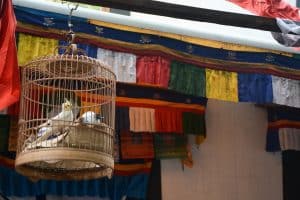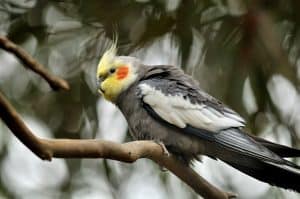Cockatiels are charming and lovable pet birds that are enjoyed by people all over the world. With their vibrant personalities and beautiful feathers, they bring joy to their owners.
While they are low-maintenance pets, it’s important to take care of their beaks. The beak is a vital part of a cockatiel’s anatomy and plays a crucial role in their health and well-being.
Cockatiel beak grinding is the process of maintaining the length and sharpness of their beaks through the use of cuttlebones, bird toys, or other grinders. This activity not only helps prevent overgrowth and malformation of the beak but also supports healthy jaw muscles and digestion.
In this blog post, we will explore the link between cockatiel beak grinding and their overall well-being. We will also discuss why it’s important for bird owners to prioritize this aspect of their pet’s care.
Importance of Cockatiel Beak Grinding
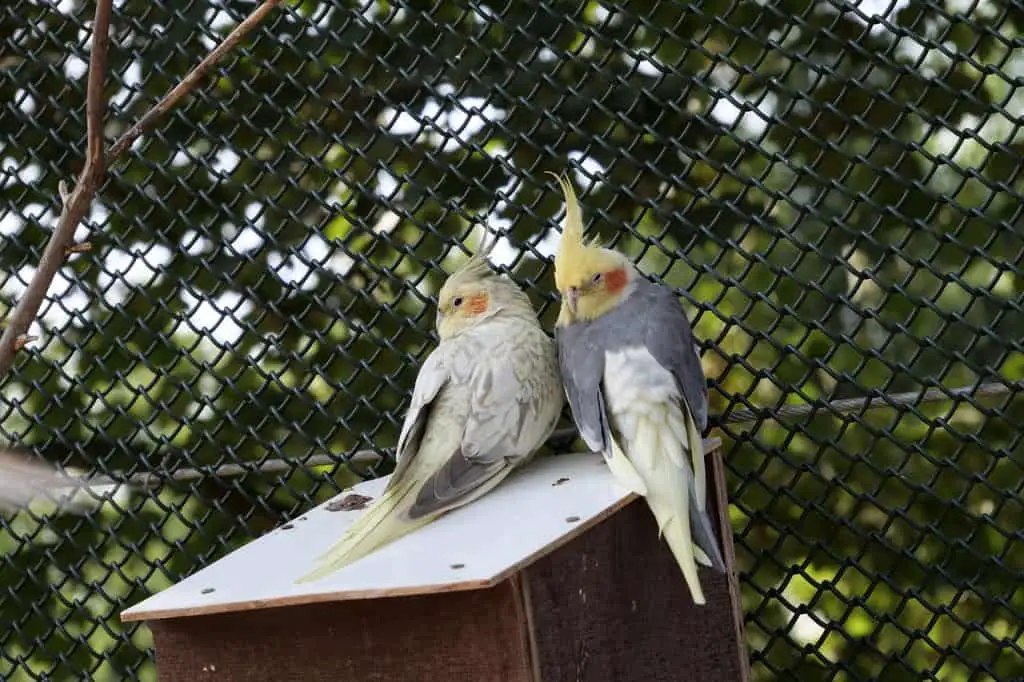
The cockatiel’s beak is a vital part of its anatomy and serves several important functions, including eating, climbing, and exploring. Over time, the bird’s beak can become overgrown or misshapen, which can affect the bird’s ability to perform these activities.
To maintain the health of their beak, cockatiels grind it on various surfaces, such as cuttlebones, bird toys, or other grinders. This not only helps keep the beak in good condition but also stimulates the nerve endings in the beak and jaw, which has a positive impact on the bird’s physical and mental health.
In the wild, birds have access to rough surfaces like tree branches and rocks to grind their beaks. However, pet birds like cockatiels may not have these opportunities in their cage. It’s important for cockatiel owners to provide their pets with grinders or other safe items they can chew on to prevent overgrown or misshapen beaks.
The Link between Cockatiel Beak Grinding and their Overall Well-being
The link between cockatiel beak grinding and their overall well-being is closely related to their physical and mental health. By grinding their beaks, birds not only keep their beaks in good condition, but also stimulate their jaw muscles and nerves, which has a positive impact on their physical health.
Moreover, grinding their beaks is a way for birds to release stress and anxiety. When a bird is under stress, it may engage in destructive behaviors, such as plucking its feathers or gnawing on cage bars. Grinding its beak is a less destructive way for a bird to release stress and alleviate anxiety.
In addition, beak grinding is also a sign of a relaxed state. When a bird is comfortable and relaxed, it is more likely to grind its beak, especially when it is about to fall asleep. This sound can be a reassuring signal for cockatiel owners that their pet is feeling content and happy.
Finally, cockatiel grinding can also be an indicator of overall health. If a bird suddenly stops grinding its beak or if its beak grinding sounds different, it may indicate a health issue. In this case, it’s important to seek advice from an avian vet to determine if the bird is suffering from any health problems, such as liver disease or an infection.
Keeping an Eye Out for Changes in Cockatiel Beak Grinding
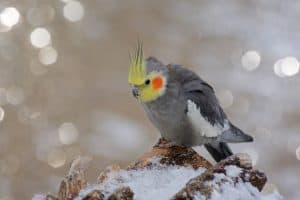
It’s important for cockatiel owners to be mindful of changes in their pet’s beak grinding. A sudden stop in grinding or a change in sound may indicate a health issue. In these cases, it’s important to seek advice from an avian vet to determine if the bird is suffering from any health problems, such as liver disease or an infection.
Seeking Advice from an Avian Vet
If a bird suddenly stops grinding its beak or if its beak grinding sounds different, it may indicate a health issue. In this case, it’s important to seek advice from an avian vet to determine if the bird is suffering from any health problems and to get further instructions on how to provide opportunities for cockatiel beak grinding. This can help ensure the happiness and health of the pet bird.
Providing opportunities for bird grinding, keeping an eye out for changes in the grinding sound, and seeking advice from an avian vet when necessary, are all important steps that cockatiel owners can take to help ensure the happiness and health of their pet birds.
Common Misconceptions about Cockatiel Beak Grinding
Cockatiel beak grinding is often mistaken for teeth grinding, which is a different phenomenon altogether. While teeth grinding is a sign of discomfort or pain, beak grinding is simply a way for birds to keep their beaks in good condition.
Another common misconception is that cockatiel beak grinding is destructive behavior, like biting or chewing on cage bars. In reality, it’s perfectly normal behavior that birds engage in to maintain their beaks and keep their jaw muscles healthy. However, if your bird is excessively grinding its beak, it could be a sign of boredom or stress, and it’s best to consult with an avian vet for further instructions.
Finally, some people believe that providing their birds with a beak grinding stone or cuttlebone is unnecessary, as birds will naturally grind their beaks against cage bars or other objects. While this is true to some extent, providing a designated beak grinder can encourage your bird to engage in this behavior more frequently, keeping its beak in top condition.
Final Thoughts: The Link Between Cockatiel Beak Grinding and their Overall Well-being
In conclusion, cockatiel beak grinding is a crucial aspect of their overall well-being and health. It’s a perfectly normal behavior that most cockatiels and parrots engage in. If you’re a cockatiel owner and notice that your bird is grinding its beak, it’s a good sign that it’s in a relaxed state. However, if you notice any excessive grinding sounds or beak damage, it’s best to consult with an avian vet. A healthy bird needs to have its beak maintained, and providing a designated beak grinder can help keep your bird’s beak in top condition. With proper care and attention, your pet cockatiel will live a long, healthy, and happy life.
Other suggested articles:
